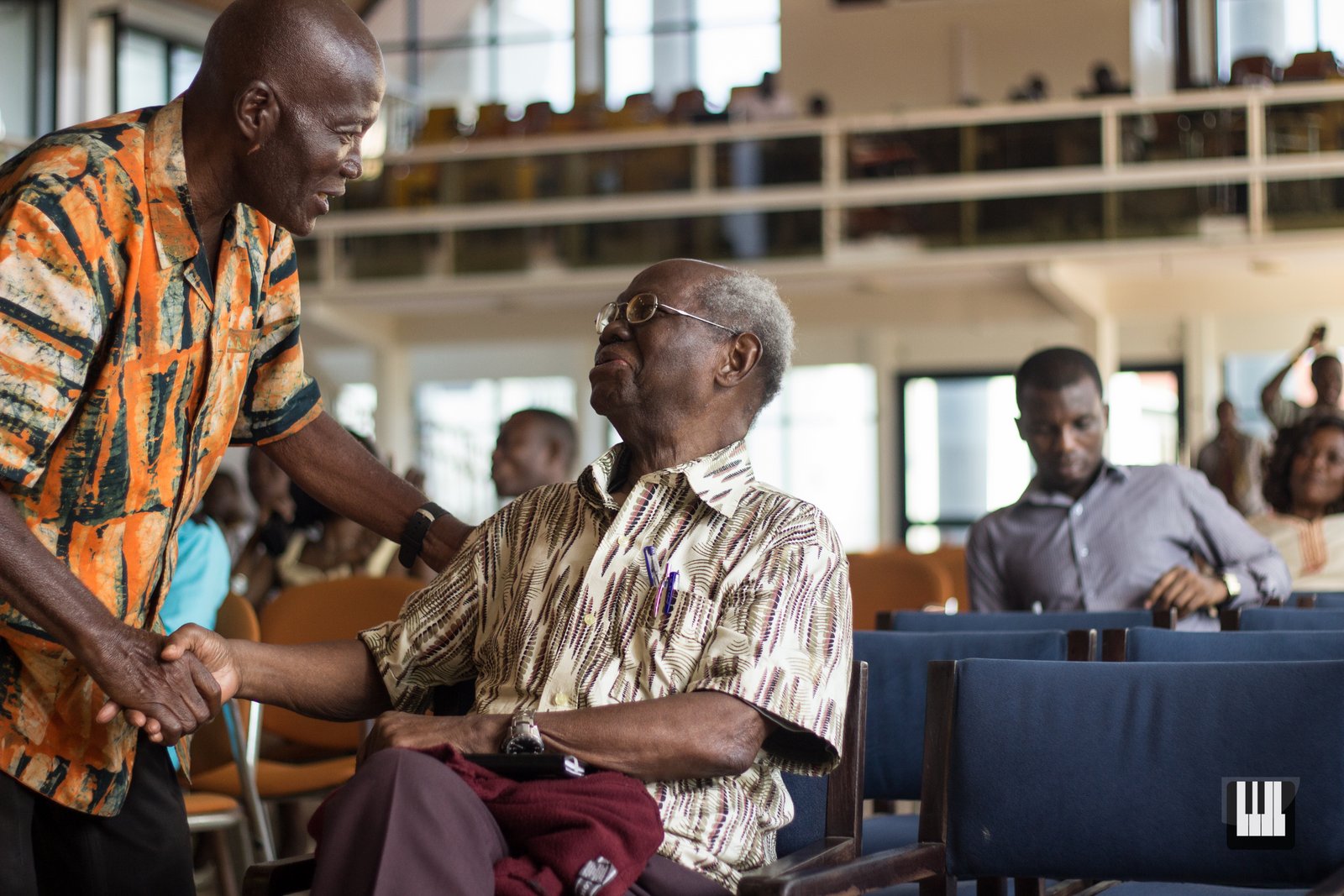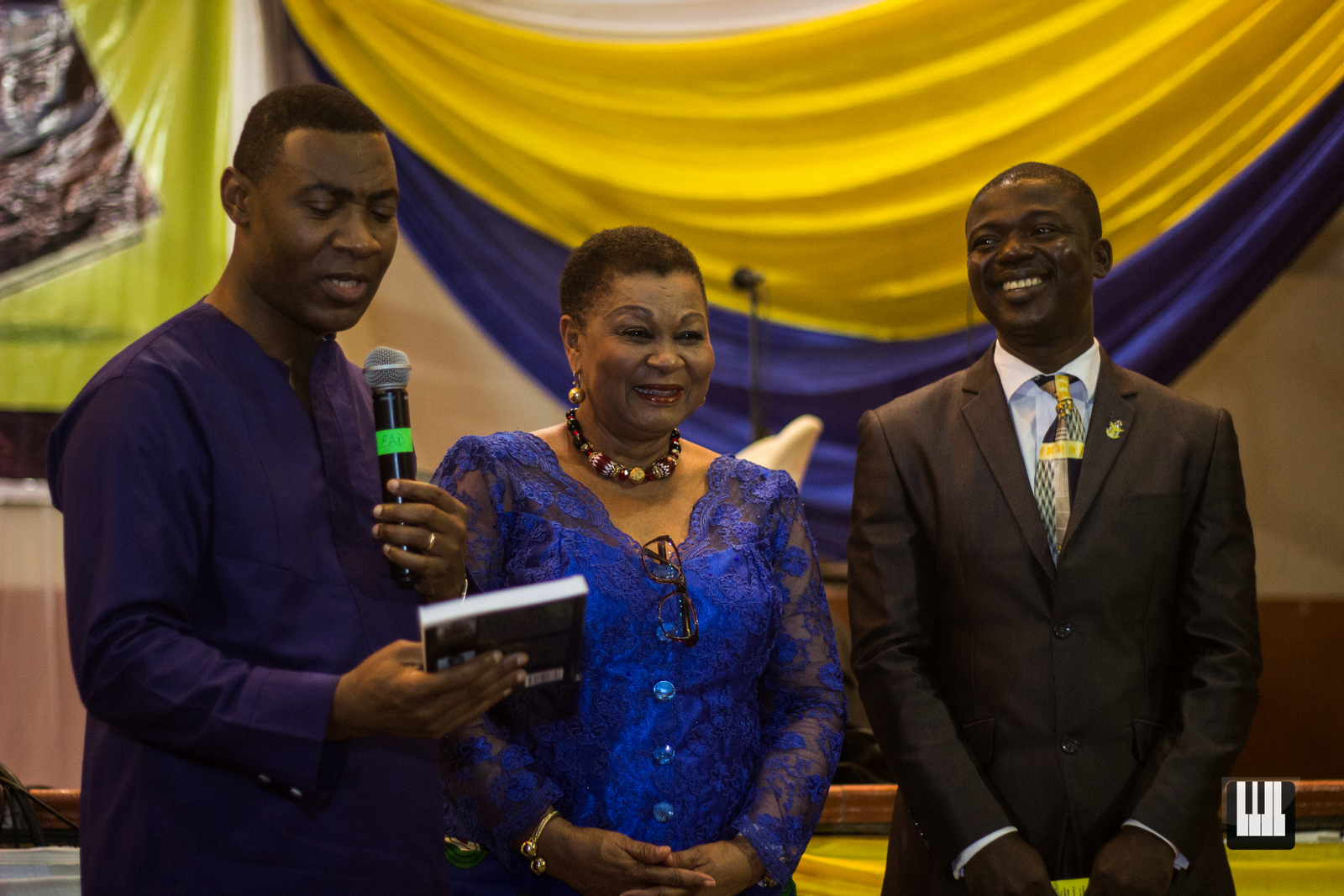Role Modelling in Music
Role modelling is an essential aspect of life. It is the stepping stone to a meaningful success without which failure is more likely. It is very key in shaping the outcome of what we intend to be and how to attain the perceived greatness embedded in us.
Wikipedia defines a role model as “someone who is worthy of imitation or a person whose behaviour, example, or success is or can be emulated by others.”
Expanding this definition, we can say there are two types of role modelling: positive and negative. Role modelling is a process of mentoring a disciple, follower or subordinate to become like his or her superior or leader. It's a unit of discipleship.

I believe positive role modelling should be incorporated into our contextual Ghanaian choral music as we are putting all resources together in its renaissance, re-branding and promotion as the most essential example of African music.
It is necessary to give an overwhelming acknowledgement to the people who worked to define what Ghanaian choral music should sound like. With much respect, names like the late Dr. Ephraim Amu (composer of the famous Yen Ara Asase Ni and the inventor of modern Atenteben), Emmanuel Pappoe Thompson (composer of Miyɛ Gbɔmɔ Ko and Ayeeko ), Philip Gbeho (composer of the music for Ghana’s national anthem), Emeritus Nana Kwambena Nketiah (the most renowned, living ethnomusicologist), N.Z Nayo, Entsua - Mensah, A. Amissah, Ata Annan Mensah, Kenneth Kafui (lecturer and composer), who are the true definition of Ghanaian art music cannot be overlooked. Their contributions are immeasurable.
It's very evident that these people have been noble examples and worthy of emulation by the current crop of Ghanaian art musicians who are diligently re-branding and promoting our cherished choral music with all their resources, with little support and recognition from the government.
The likes of Rev. Dr. Newlove Annan, George Essilfie Mensah, Osei Boateng, Sekyi Baidoo, James Varrick Armaah, Scott Benin, Sam Asare Bediako and a host of other people are doing so much in the industry, and on several occasions make references to the people who have impacted them positively to develop interest in music from different dimensions.
It is appropriate to mention the wonderful woman in the industry who has been pulling strings together to facilitate the course: Rev. Dr. Mrs. Joyce Aryee. She is the stimulus that is provoking the success of Ghanaian choral music today. Her efforts are undisputed and inspiring to the upcoming young women in the industry.

Role modelling cuts across all sectors of the choral music industry, from directorship and "Choirship" as I call it. Good leadership and followership will serve as the pillars of sustaining and promoting choral music in Ghana and to gain the acknowledgement it deserves. Choirs and their directors must be have the yearning and desiring spirit of learning from reputable and established ensembles that are doing so well in the country.
"Setting an example is not the main means of influencing others; it’s the only means." - Albert Einstein.
Groups that are on the front line must be cautious of how they present themselves to those they are mentoring as Rosabeth Moss Kantor describes, "Leaders are more powerful role models when they learn than when they teach."
Recently, we have witnessed a series of internal and external workshops organised by various choirs for their members with experts from different backgrounds taking them through vocal exercises, organisational skills, and other interesting activities. These include the New Year Voice College (NVC), organised by Gramophone Ghana and the recently held Joyce Rosalind Aryee (JRA@70) workshop and concerts. All these are steps in the right direction. The are equipping and harnessing the musical skills of choristers.
These are laudable efforts which will immensely spring wonderful fruits at the long run; a massive investment!
I am calling for all stakeholders to take active participation in outlining and implementing realistic objectives and goals which can drive the industry to its rightful place. Leadership should also be responsible in acknowledging the efforts of key sponsors of the industry.
To conclude, it should be emphasised that the progress and success of the choral industry lies only in good leadership and role modelling skills which will build the foundation for future generations in sustaining and promoting our Ghanaian choral music heritage within and outside the boundaries of the country.